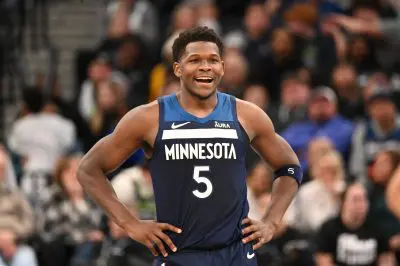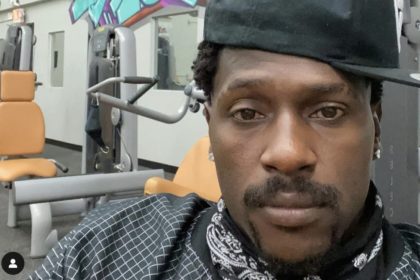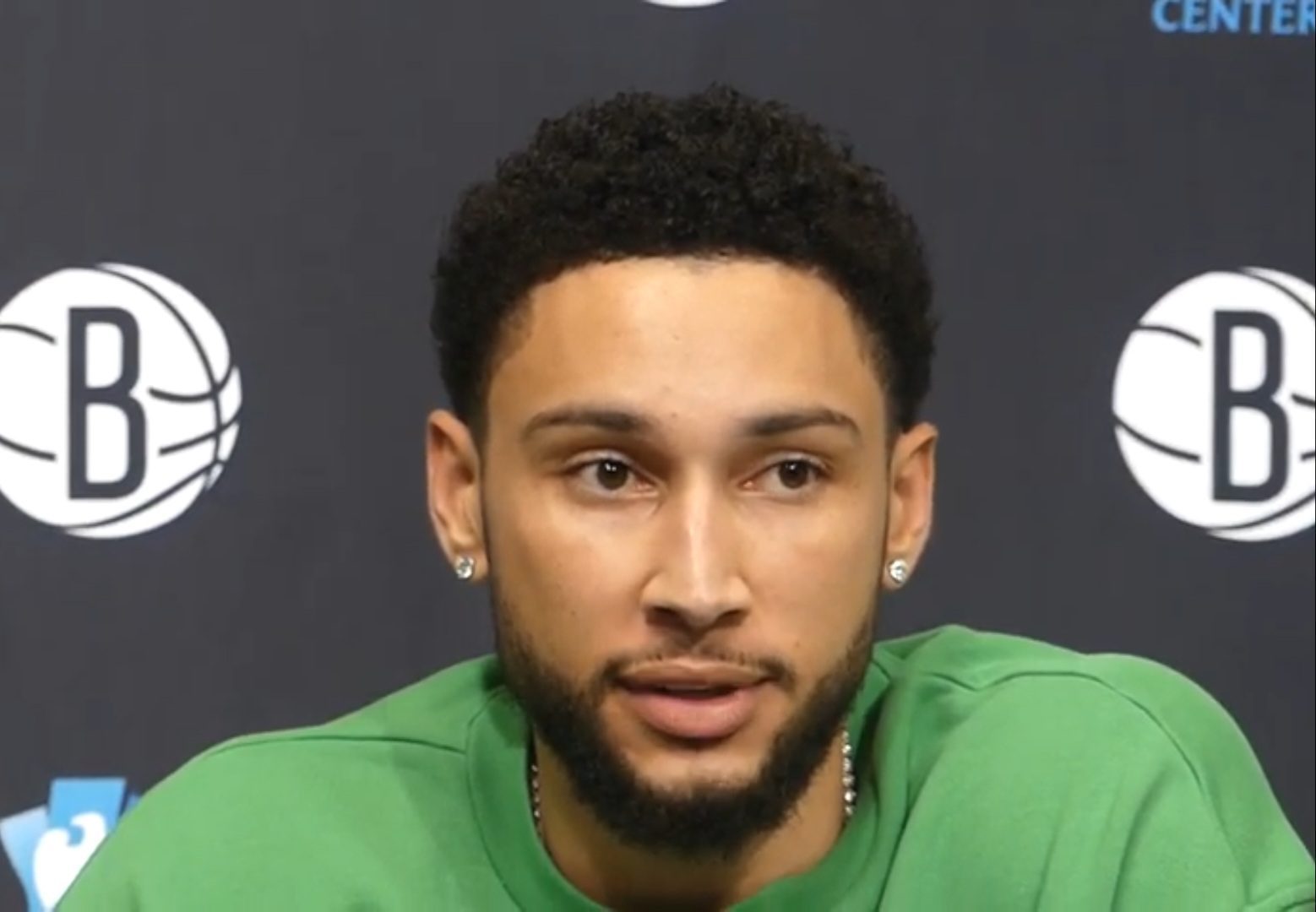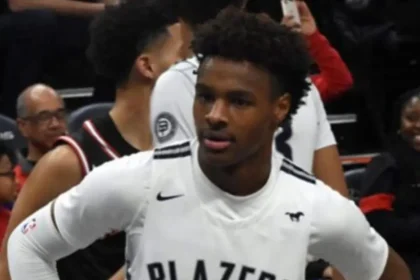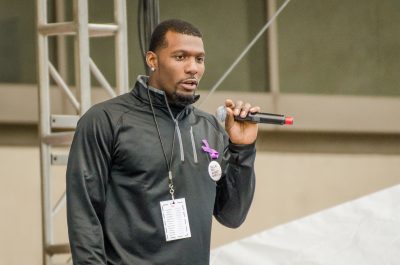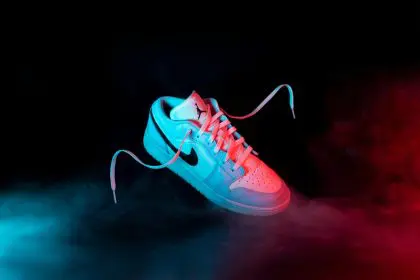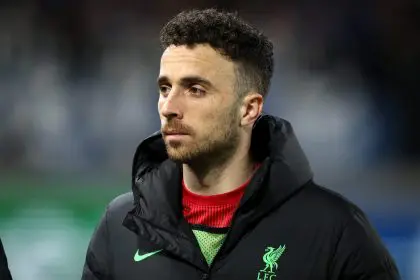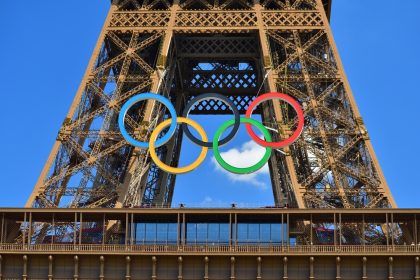That’s how long it had been since audio recordings were published by TMZ purported to be of billionaire Los Angeles Clippers’ owner Donald Sterling making disparaging remarks about his girlfriend, V. Stiviano, associating with African Americans. The reaction to those recordings has been widespread criticism and condemnation of Sterling, as is warranted. Just a little over 24 hours after the recordings were made public, the Los Angeles Clippers basketball team had to take the court for Game 4 of their first-round playoff series against the Golden State Warriors. The team, according to coach Doc Rivers, wrestled with the appropriate way to show solidarity for each other while also protesting their team’s racist owner. The players decided to wear armbands to cover the Clippers logo, then dumped their official team warm-up gear at half-court before the game. They wore inside-out warm-up jerseys instead.
The team was instantly inundated with criticism on social media. Fans derided them as cowards and a popular meme with Chris Paul’s face Photo-shopped onto a poster for 12 Years A Slave began to make the rounds. The general consensus seemed to be that they were spineless for not doing more to highlight their disdain for Sterling. The fact that they played despite the recording’s hateful content made them a joke —at least that was what the critics had to say. By the following morning, the entire team was being ripped for what many mocked as an insufficient gesture of protest.
Again, this all happened within 48 hours of the recordings being made public.
Some who have criticized the Clippers gesture have unfavorably compared the team, and modern athletes overall, to more activist-driven athletes of yesteryear like Muhammad Ali and Olympians Tommie Smith and John Carlos. This, they say, proves that athletes today only care about money and won’t do anything to jeopardize their paycheck; they have no sense of racial dignity or pride. But Ali’s April 28, 1967 refusal to be drafted into the military at the height of the Vietnam War was not a decision he made the night before. Many in the media and boxing worlds already knew that Ali was going to refuse and that he’d made up his mind long before any legal wrangling began, on his behalf or otherwise.
The comparison to Smith and Carlos is more sensible, in that they chose to use the public platform of sports to stage a silent protest for human and civil rights. I found it interesting that so many people championed Smith and Carlos for their simple, silent gesture while mocking the Los Angeles Clippers for theirs. Some might argue that a “Black Power” fist at the 1968 Olympics carries more cultural weight than black socks and inside-out jerseys at a 2014 NBA playoff game; but if that’s true, isn’t that more of an indictment of the people than of the gesture?
We the people have become so cynical that symbolic gestures hold less weight with us. For all of the criticism of the Clippers players, there seemed to be very little acknowledgement of the public watching the game at home or the attendees. Solidarity means that we all hold ourselves accountable, and there were people tweeting hateful memes about the Clippers players while also sharing their thoughts on the team’s 118-97 blowout loss to Golden State. Which means they were at home, watching that game.
There have been calls for a boycott of the Clippers organization, which is something that the public can and should do. But it’s important to remember that a boycott is a refusal to support a business — to purchase said business’ goods and services — until the business atones for a grievance of some kind. The public doesn’t want a “boycott” by the Clippers players —the public is, more or less, asking for a strike. There’s a difference between refusal to spend money and refusal to earn money–even when it pertains to wealthy NBA players. A strike is a tricky thing to navigate, especially considering these players are under contracts. How fair is it to expect this team to have developed a plan and enacted it in less than two days? The Montgomery Bus Boycott and Selma march weren’t planned in two days.
There could have been numerous players who immediately got on the phone with their agent and said “Get me out of here. I refuse to report to training camp in the fall if this guy is the owner.” Who’s working to negotiate a buyout or a trade? Doc Rivers may not return at all as coach after this; yet we’ve already determined he’s a “slave” just two days after the incident? It’s all very unreasonable. An empty Clippers training camp sends just as strong a message to the world as a forfeited playoff game–but it also asks us to follow this story for more than just a few days.
As a generation, we have confused tactical, organized protest with visceral, emotional release. In the age of social media, a news story is old within eight hours of it breaking. So we’re angry and we’re impatient. That is why platform is given to pieces like Homeboy Sandman’s misguided “Black People Are Cowards” rant. His piece surfaced the day after the Clippers/Warrios game. It reads as an emotional piece because he obviously wrote it from an emotional place. In his arrogance and self-righteous generalizing, he insults the black people involved with organizations like Dream Defenders that have worked tirelessly in the wake of Trayvon Martin’s murder to bring attention to Florida law and pressure legislative officials into changing it. He insults those that traveled from all over the country to support Troy Davis as he fought to the very end against his death sentence in Georgia. He insults the black people who fought and vocalized criticism of New York City’s “Stop & Frisk” policies and eventually got the policy abandoned. With his trolling headline and all-too-easy reactionary commentary, he epitomizes this overly-romanticized view black people have of our activist history. We forget that there was a lot of work going on —a lot of paperwork and a lot of meetings —that didn’t make headlines or fuel legends. We watch marches of 45 years ago with reverence, then scoff when we see them today. The problem is us. The problem is our cynicism. We have no patience and we have no sense of how long a fight could be. Byron De La Beckwith murdered Medgar Evers in 1963. He wasn’t convicted of it until 1994, after three trials. I wonder if we have that kind of stamina in this age. We’ve become microwave revolutionaries who are ready to elevate a scandal to the level of a crisis just to feed our need to have a “moment.” But only for a few days. Then the new episode of “Game of Thrones” airs or the new X-Men movie is released and this becomes old news. Never mind the fact that we joyfully disrespected twelve or thirteen men who have done nothing wrong. And never mind the people who are actually putting in the real work–even after an issue is no longer a “hot button” one.
Tommie Smith and John Carlos protested after they’d competed and won medals. They didn’t forfeit anything. And we love them for it. Maybe we should show a little more love and support to players who have found themselves in a difficult situation and are undoubtedly torn about how best to address it. And maybe we could show a little solidarity by not watching or attending any Clippers games until Sterling is no longer affiliated with the team. And, as unfashionable as it is to say, maybe we can reserve judgment against these players until this situation has played out.
Or at the very least, give them more than 48 hours.


